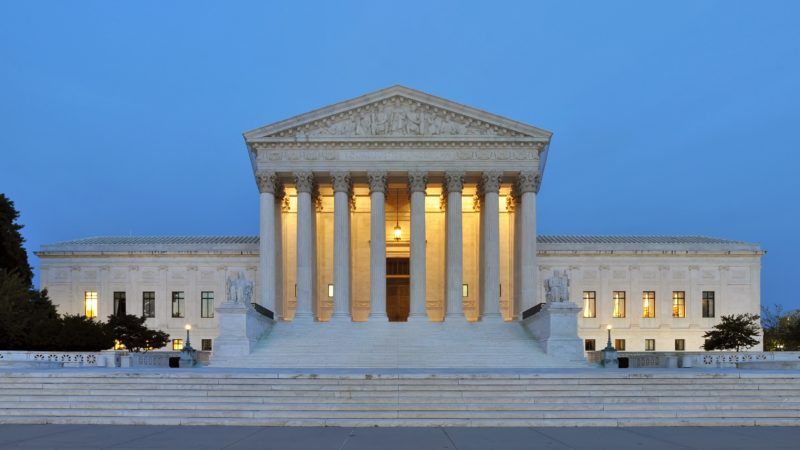Supreme Court To Hear 2 Cases Challenging Race-Based College Admissions
The Supreme Court could decide the fate of affirmative action at public and private universities.

The Supreme Court will soon consider whether race-conscious admissions practices at Harvard and the University of North Carolina (UNC) are constitutional.
The court agreed today to hear both Students for Fair Admissions v. President and Fellows of Harvard College and Students for Fair Admissions v. University of North Carolina in the next term. These high-profile cases are likely to determine the future of race-conscious practices, colloquially known as affirmative action, in college admissions.
The Harvard case centers on claims by that the university's admissions process discriminates against Asian applicants. The Asian-American plaintiffs claim that Harvard penalizes Asian applicants through use of personality ratings, which work to create an effective ceiling for them in admissions. The plaintiffs argue that Harvard rated Asian applicants lower on traits such as likability, courage, and kindness. An internal study from Harvard showed that Asians would comprise 43 percent of the admitted class if only academics were considered in the admissions process. Instead, Asian Americans made up 25.9 percent of Harvard's admitted students for the class of 2025.
Harvard argues that the plaintiffs used a flawed analysis and that they do not discriminate against Asian applicants. In a brief asking the Supreme Court to deny review, Harvard defended race-conscious admissions policies and said that these policies help the university fulfill its institutional mission of educating "citizens and student leaders for our society."
The UNC case argues that the school unfairly discriminates against Asian and white applicants by giving admission preferences to underrepresented minorities. UNC defended its admissions practices in a public statement published on their website: "We prepare students to become the next generation of leaders and enhance the quality of life for all North Carolinians. Students, faculty, and business leaders who hire hundreds of our graduates each year say the strength of a Carolina education lies in the diversity of experiences among our student body."
The cases were built with the help of Students for Fair Admissions founder Edward Blum, a legal activist who The New York Times describes as "a matchmaker bringing together two forces: students and others who believe they are being mistreated in the name of racial justice, and conservative donors who finance his work and that of the high-powered, establishment Republican lawyers who take the cases to court." Blum played a role in Abigail Fisher's lawsuit against affirmative action at the University of Texas, which ultimately did not succeed.
Race-conscious admissions policies are deeply unpopular in some surveys. A 2019 survey from Pew Research Center found that most Americans—including 62 percent of blacks, 65 percent of Hispanics, 78 percent of whites, and 58 percent of Asians—believed that race should not be a factor in admissions decisions.
The Harvard economist Richard Kahlenberg has compiled data that shows Harvard could actually increase the number of underrepresented minority admissions by using socioeconomic preferences while dropping legacy preferences. From 2014 to 2019, Harvard admitted 33 percent of legacy applicants, as opposed to roughly 5 percent of the general applicant pool. The median Harvard student comes from a family that earns $168,000 a year, and poor students are outnumbered by well-off students by a ratio of 23-to-1.
In the United Kingdom, Oxford University has been able to increase the number of minority students on campus through outreach programs, even while maintaining a completely race-neutral admissions process.
"Of course, a truly diverse student body may produce a number of benefits. It might teach tolerance, acceptance, and open-mindedness," reads an amicus curiae petition filed by the Pacific Legal Foundation, the Reason Foundation (which publishes this website), the Center for Equal Opportunity, the Chinese American Citizens Alliance, and several other parties. "But none of those purported benefits can justify the harm of racial preferences: racial discrimination."
